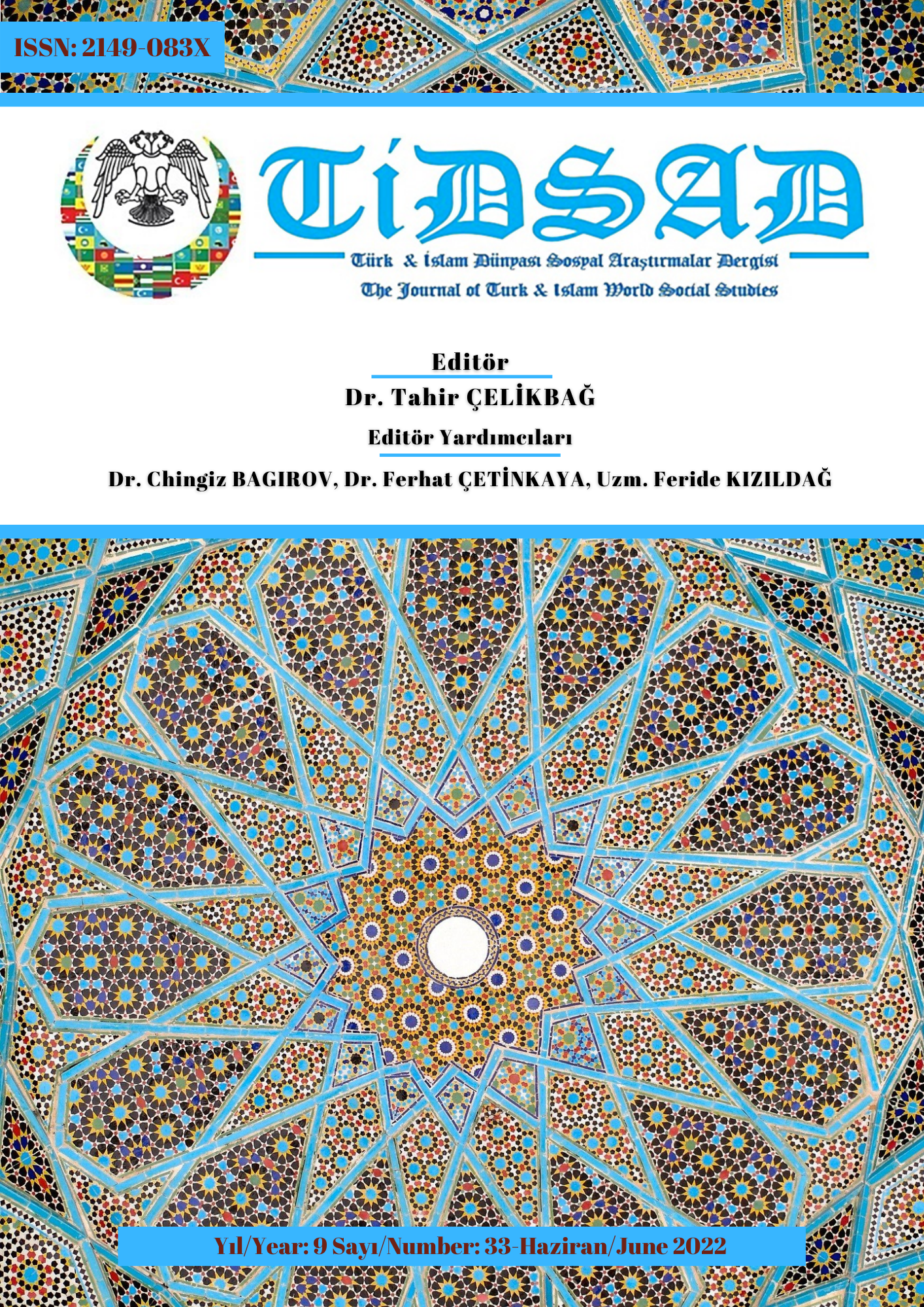Author :
Abstract
19. yüzyılın sonlarında gerçekleşen yöntemler savaşı sonucunda sosyoloji ve ekonomi bilimi Avrupa’da ayrılmıştır. Bu savaş sonucunda Almanya’daki Tarihçi Okul yenilgiye uğramış, ekonomi bilimini Neoklasik paradigma kontrol altına almıştır. Neoklasik paradigma iktisadi olayların açıklanmasında da bir tekel konumuna yükselmiştir. İktisat sosyolojisi adlı disiplin ise Alman Tarihçi Okulun köklerinde doğmuştur. İktisat sosyolojisi yaklaşımına göre kültür gibi sosyal faktörler veya sosyal ilişkiler iktisadi davranışı etkilemektedir. İktisat sosyolojisi Neoklasik teorinin karşısında ekonomiyi “sosyal ekonomi” kavramı ile tanımlamaktadır. İktisat sosyolojisine göre ekonomi toplumun bir parçası olarak kabul edilir. Bu sosyal bilim dalına göre ekonomi toplumdan ayrı bir sistem değildir, ekonomi daha büyük bir sistem olan toplumun bir parçası ola-rak kabul edilmelidir. Bu bağlamda çalışmada iktisat ile sosyoloji arasında bir köprü görevi taşıyan iktisat sosyolojisi yaklaşımı anlatılmaktadır.
Keywords
Abstract
At the end of 19th century, with the War of Methods sociology and economics seperated from each other. The German Historical School lost the war against the Neoclassical school. And the Neoclassical school dominated the economics dicipline. Neoclassical paradigm becomes a monopoly in explaining economic events. Economic sociology borned from the roots of German Historical School. According to the approach of economic sociology social factors like culture and social relations influence economic behaviour. Economic sociology conceptualize economy as social economy against the atomistic view of Neoclassical school. Economic sociology views economy as sub-system of society. Therefore, economy is a part of larger system that is society. At this study, the approach of economic sociolgy which is a bridge between economics and sociology is explained.
Keywords
- Aygül, H. H. (2014). Zihniyet, din ve iktisat. Açılım kitap.
- Best, S. (2015). Talcott Parsons: Despair and modernity. Ashgate Publishing Company
- Bishop, R. (2007). The Philosophy of the social sciences. Continuum International Publis- hing Group
- Buchholz, G. T. (2005). Ölü iktisatçılardan yeni fikirler: Modern ekonomik düşünceye giriş [Çev.: İsmail Aktar]. Adres Yayınları
- Collins, R. (2017). Max Weber: Bir kılavuz. Phoenix Yayınevi
- Convert, B. ve Heilbron, J. (2007). Where did the new economic sociology come from?. Theory and Society, 36 (1), 31-54.
- Fleury, L. (2009). Max Weber. Dost Kitabevi Yayınları.
- Granovotter, M. (2001). Economic action and social structure: The Problem of embedded- ness. In Swedberg, R.; Granovetter, M. (Ed.), The Sociology of economic life, s. 51-76, Westview Press.
- Hass, J. (2007). Economic sociology: An introduction. Routledge.
- Kabaş, T. (2018). Türk toplumu perspektifinden Alman ve Amerikan modernleşmesinin değerlendirilmesi. Asos Journal-The Journal of Academic Social Science, 6(66), 8492.
- Kabaş, T. (2020). Türk toplumunun sağlam bir ahlak temeline oturmasını sağlayacak Weberyen sosyal ekonomi önerisi. Asos Journal-The Journal of Academic Social Science, 8(101), 215-229.
- Kalleberg, Arne L. (1995), Sociology and economics: Crossing the boundaries. Social For- ces, 73(4), 1207-1218.
- Keith, M., Lash, S., Arnoldi, J., & Rooker, T. (2014), China constructing capitalism. Routledge.
- Parsons, T. (1982). Talcott Parsons: On Institutions and Social Evolution (Ed.: Leon H. May- hew). The University Of Chicago Press
- Richter, R. (2017). Institutional Thought in Germany (Revised in 2017) Report at the ISNIE Meeting of 2000 at Tübingen, Germany.
- Swedberg, R. (1991). Major Traditions of Economic Sociology. Annual Review of Sociology, 17, 251-276.
